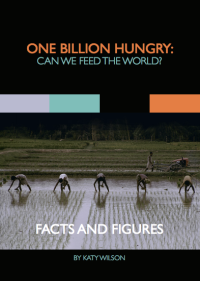
Photo by phanlop88
Digital technology is likely to continue to be a major driver of development and industry in Africa. The capabilities of local entrepreneurs, start-ups and businesses to provide services such as technical assistance and finance are growing significantly due to greater access to mobile and internet technology. As such digital solutions are likely to make a huge contribution to addressing local concerns, connecting people in remote areas and to reaching greater numbers of people than more traditional development initiatives. Such technologies are already transforming the way in which smallholder farmers work and interact. Here we discuss five ways in which digital technology can play a part in transforming agriculture in Africa.
- Extension services
Accessing information on farming practices, crop diseases, pest control and land management can be made easier for rural farmers through mobile technology. At present there is a large gap between extension services provided and farmers being reached. In Kenya, for example, over 5 million smallholder farmers rely on just 5,500 agricultural extension workers so many are not getting the advice and information they need. Provision of phone-based agricultural information, advice and support to smallholder farmers can bridge this gap by utilising Africa’s exiting mobile network (currently the second biggest mobile market in the world). The form of the service can differ between organisations, some relying on coordinating agents within local communities to provide advice via their phone, some being purely an information service providing farmers with text messages containing advice relating to farming activities occurring at that time. Esoko, which provides a variety of agriculturally-related apps, has created several platforms for providing technical assistance, including personalised alerts with market, weather and agronomic information; knowledge-sharing to deliver extension advice to extension agents though audio, video, instruction manuals and information libraries; and bulk messaging to send data on best practice, campaigns and new products to all farmers. [Read more…]









